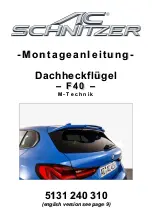
Every time you check inflation, you
should also examine the tires for
damage, foreign objects, and wear.
You should look for:
Bumps or bulges in the tread or
side of the tire. Replace the tire if
you find either of these conditions.
Cuts, splits, or cracks in the side
of the tire. Replace the tire if you
can see fabric or cord.
Excessive tread wear.
Tire pressure for high-speed driving
is the same as for normal driving.
When you return to normal speed
driving, be sure to readjust the tire
pressure for normal driving. You
should wait until the tires are cold
before adjusting the tire pressure.
For convenience, the recommended
cold air pressures and tire sizes are
on a label on the driver’s doorjamb.
For additional information about
your tires, see page
.
We strongly recommend that you do
not drive faster than the posted
speed limits and conditions allow. If
you ever drive in a sanctioned
competitive event at sustained high
speeds (over 118 mph or 190 km/h),
be sure to adjust the cold tire
pressures as shown in the next
column. If you do not, excessive heat
can build up and cause sudden tire
failure.
Front/Rear:
367
Si model only
Except Si model
Si model only
Tires
Tire Inspection
Tire Size·Cold Tire Pressure f or
High Speed Driving
High Speed Driving
326
P215/45R17 87V
35 psi (240 kPa , 2.4 kgf/cm )
08/07/09 12:19:09 31SNA630 0331
















































